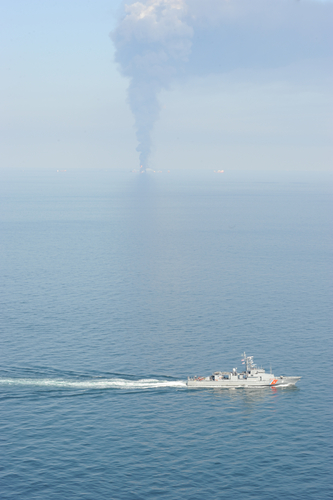It would be hypocritical of me to slam the oil and gas industry right now as I finally unloaded one oil and gas property last week for more than just pocket change — not much more than that to be sure.
But I don’t control the petroleum markets, obviously, or I wouldn’t be sitting here writing on a blog that only a couple of friends, a few of my brothers and I read. I’m joking, of course. I have had readers from 21 different countries on the last 500 page hits. However long a period that might be. And it might interest you to know that behind the U.S. and Japan (my friend Paul), 1.6 percent of my page visits have been from the Ukraine while 11 countries including China, India, Germany and Iran tie for 0.2 percent of my readers, visits, whatever. Filler. That’s what that was.
The point I was going to make was that gasoline remains higher than it was a year ago, according to the U.S. Department of Energy. On average it is anywhere from $0.70 to $.0.95 per gallon throughout the U.S. It seems, as well, that it might just take another jump because of the explosion and sinking of Transocean’s Deepwater Horizon oil rig in the Gulf of Mexico.

No one is saying that right now, except people like myself who know absolutely nothing about the workings of the oil and gas industry. However, doesn’t it seem logical? Even though the Deepwater Horizon had yet to produce any oil it would seem a rig which would cost about $600 million to replace, not to mention scores of lawsuits that one might bet are already on the horizon, sorry for the pun, would set off a chain reaction. And it seems that at the bottom it all ends with the consumer paying more at the pump. S**t rolls down hill, we used to say in the Navy. I don’t know why, it doesn’t seem much like a nautical saying to me.
Transocean Ltd. operated the rig for BP, the artist oil company formerly known as Prince British Petroleum. That company is relatively fresh from having millions upon more millions of dollars extracted from it in fines and from a settlement engineered by local (Beaumont, Texas) lawyer Brent Coon over the BP Texas City, Texas refinery explosion five years ago. That blast killed 15 workers.
With the oil rig’s sinking, the Texas City saga somewhat fresh and the fact that both Transocean and BP each lost more than 50 cents in stock trading today on the New York Stock Exchange, it would certainly seem that a chain reaction is not unexpected. That, of course, could set off more s**t running down hill and ultimately cause motorists to have lighter pocketbooks or at least fewer digits to the left of the decimal point in their bank accounts.
It goes unsaid that as time goes on from when the explosion happened that the fate of the missing workers becomes more and more ominous. That has nothing to do with the price of gasoline in Beaumont, Texas, for now at least, nor does it affect the price of eggs in China.
People have real issues over which to worry such as whether their loved ones are alive or dead in the sometimes unforgiving waters of the Gulf of Mexico. Whether we pay more for gasoline because of this is really irrelevant when looked through the lens of life. Nevertheless, some will pay with their lives so we can pay at the pump.
Inarticulate perhaps as it is to say, it sucks. However, it’s just another day’s work.

Spelling error report
The following text will be sent to our editors: